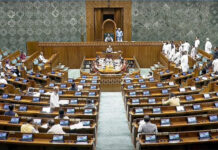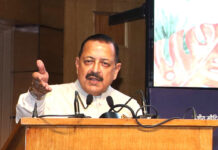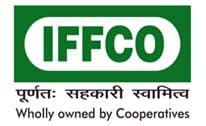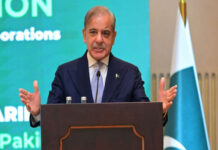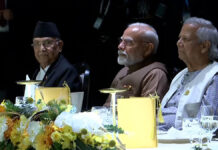The newly-constituted Monetary Policy Committee (MPC) of the Reserve Bank began its three-day deliberations on Wednesday, amid expectations that the central bank will maintain status quo on the benchmark lending rates in view of hardening inflation. At the end of the deliberations, the RBI will come out with its monetary policy review on Friday. The meeting of the six-member MPC, earlier slated for September 29 to October 1, was rescheduled as the appointment of independent members was delayed. The MPC must have a quorum of four. The government has now appointed three eminent economists Ashima Goyal, Jayanth R Varma and Shashanka Bhide as members of the MPC headed by the RBI Governor. Experts opined that the Reserve Bank of India may not go for a reduction in the policy rate in the wake of rising Consume Price Index (CPI) based inflation, driven mainly by supply-side issues. Industry bodies are of the view that the RBI should maintain its accommodative stance on the policy interest rates in the wake of serious challenges in limiting contraction in the economy due to COVID-19 pandemic. Tanvee Gupta Jain, Economist, UBS Securities India said that retail inflation (CPI) was above the RBI’s upper tolerance band of 6 per cent in the past two quarters (March and June 2020), and likely remained above 6 per cent in the September quarter too. Jain expects the RBI to keep the policy rates on hold. “That said, we maintain our base case view that the policy easing cycle is not over yet. We expect a further 25-50 bp rate cuts in FY21, likely in the December/February policy review once CPI inflation has eased close to the RBI’s 4 per cent,” the UBS analyst said in a report. RBI Governor Shaktikanta Das had earlier said, although there was headroom for further monetary policy action, it was important to keep “our arsenal dry and use it judiciously”. Mayur Modi, Co-founder and Co-CEO, Moneyboxx Finance pointed out that the smaller NBFCs have found it difficult to access liquidity, both for working capital and growth. “As of now only established and big NBFCs are getting access to RBI’s partial guarantee scheme and other liquidity measures. On the other hand, if this scheme gets extended to smaller NBFCs which are catering to micro-businesses (borrowing up to Rs 5 lakh), these businesses will find some relief in the form of easy accessibility of loans at a better rate,” he said. Financial services firm Edelweiss in its report said while a rate cut is unlikely in the forthcoming policy review, “we do expect the policymakers to maintain the dovish/accommodative stance, thereby keeping the door open for further rate cuts”. Jyoti Prakash Gadia, Managing Director, Resurgent India said the RBI needs to tilt its stance towards growth post-COVID-19 at this stage even at the cost of some inflation as a trade-off. FirstRand Bank treasury head Harihar Krishnamoorthy said: “Along with everybody, I also expect no change in the policy rate as the inflation is above the RBI’s comfort level. RBI will continue with an accommodative stance to make sure that the economy has enough money”. After its last MPC meeting in August, the RBI had kept interest rates unchanged to help tame inflation that in recent times had surged past 6 per cent mark, and said the economy is in an extremely weak condition following the pandemic. The RBI has cut interest rates by 115 basis points since February.

Dogra Herald is the media of J & K, breaking language and geographical barriers, connecting J & K to the rest of India.
0191 245 4946
info@dograherald.com
Latest articles
Weapons recovered near LoC in Poonch
iamjkstarr - 0
On Monday, J & K Police and Indian Army recovered a cache of arms near the Line of Control (LoC) in Deri...
Radical elements trying to divide people on communal lines: Farooq on hijab row
iamjkstarr - 0
Srinagar: Asserting that some radical elements were trying to divide the people of the country on communal lines amid the hijab controversy, National...
US committed to partnering with Maldives to ensure free and secure Indo-Pacific region: Blinken
Washington/Male, Jun 26The US has reaffirmed its commitment to partnering with the Maldives to promote a free, open, secure, and prosperous Indo-Pacific...








